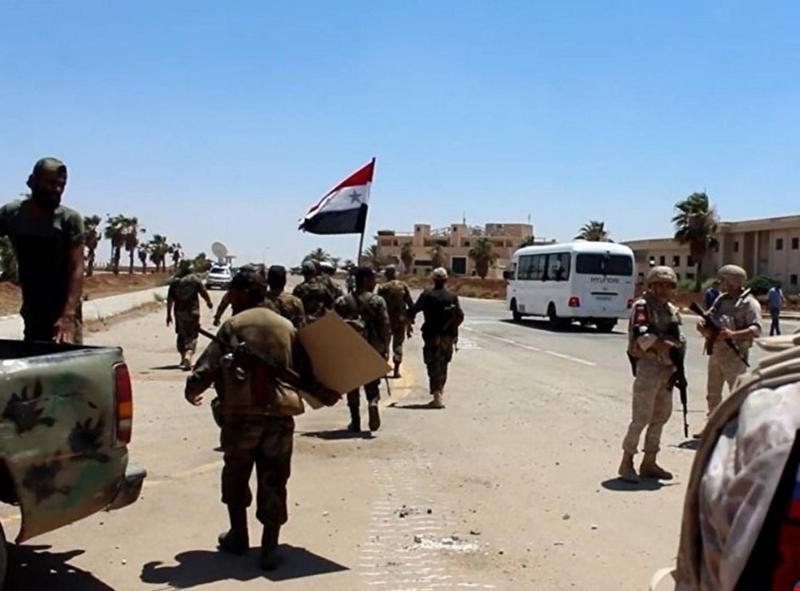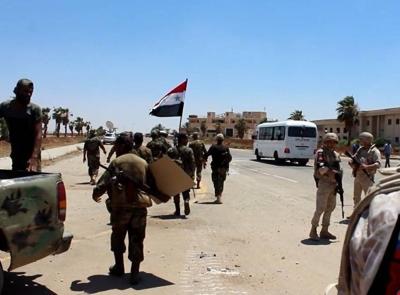Witnesses and sources from the opposition fighters and the army reported that 50 opposition fighters and their families were evacuated on Thursday from the last opposition stronghold in southern Syria, under a Russian-sponsored agreement to avoid a military confrontation in the strategically important border area with Jordan and Israel. A unit of the Russian military police entered the enclave on Tuesday to enforce a plan allowing the army to take control while providing a safe passage for former opposition fighters who oppose the agreement to areas of opposition in northwestern Syria.
The Russian move halted an attempt by Iranian-backed military units, led by the Fourth Division of the elite forces, to storm the enclave, which controls the area and has tightened a two-month siege, as well as intensified shelling in preparation for an assault. The Syrian army regained control of the province, with the help of Russian airpower and Iranian militias, in 2018, which has its capital in Deraa, bordering Jordan and the Golan Heights.
The agreement forced thousands of Western-backed opposition fighters to surrender heavy weapons but prevented the army from entering the stronghold known as Deraa Al-Balad. Moscow had given guarantees to Israel and Washington in 2018 that it would prevent Iranian-backed militias from expanding their influence in the strategic area.
U.S. Secretary of State Antony Blinken condemned what he described as the "brutal assault" by the Assad regime on Deraa earlier this month, calling for an immediate end to the violence "that has killed civilians and displaced thousands."
More than 50,000 civilians, along with thousands of former opposition fighters, lived in the stronghold that witnessed the first peaceful protests against the Assad family's rule, which were met with force before spreading throughout Syria. Residents and local officials indicated that the area has now become a ghost town after weeks of sporadic fighting and shelling that prevented the army from entering food, medical supplies, and fuel, although it opened a corridor for civilians to leave.
The enclave and other towns in southern Syria have witnessed sporadic protests against President Bashar Assad's rule since the state regained control of Deraa province, with such protests being rare occurrences in areas controlled by the Syrian state.




